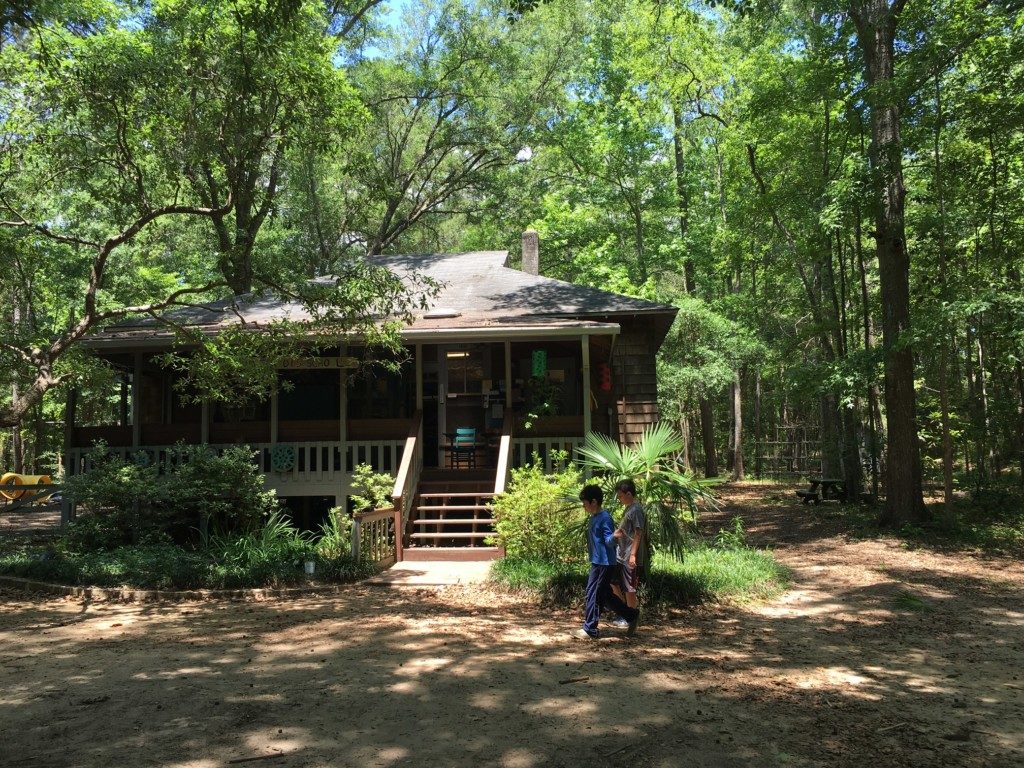
This is the latest post in our occasional series on the center-left roots of school choice.
The tiny Grassroots School in Tallahassee, Fla., is democratically run. Everybody votes on everything. Some of its 24 students recently led a successful bid to limit use of school computers. Others debated whether Grassroots should raise chickens or rabbits. The chicken faction won.
School choice has been on the agenda, too.
And for those who think choice is a good thing, good news: After a decade-long hiatus, the 42-year-old “free school” is again among the 1,600 private schools in Florida that accept tax credit scholarships for low-income students.*
“We want to serve all families,” not just those who can afford tuition without scholarships, said Kim Weinrich, the school’s chief academic officer. “That’s very important to us.”
Given the myths that fog perceptions about school choice, it’s noteworthy a school like Grassroots is participating in the nation’s largest private school choice program.
The “hippie school,” as it’s jokingly called, is rooted in one era but branching into a new one. In the 1960s and ‘70s, hundreds of schools like it mushroomed across America, nourished by a counterculture compost that rejected bureaucracy and uniformity. According to the Alternative Education Resource Organization, at least 100 remain.
A handful of families started Grassroots when Tallahassee was particularly fertile ground for liberal activists concerned about war, racism, pollution. “They were trying to figure out how we can improve,” in education and every other sphere of life, said longtime supporter Jan Alovus.
A self-described back-to-the-lander, Alovus migrated to Tallahassee in 1981, drawn by the city’s rep as a “cooperative community.” She paused, though, at sending her children to public schools: “I had been with them every day of their lives and all of a sudden somebody else was in charge of them?” she said. “That was odd to me.”
The remedy? Alovus and others started a land co-op that set aside four acres of oaks and magnolias for Grassroots. The school is still there, a stone’s throw from one of Tallahassee’s impossibly lush canopy roads and on the fringe of a sea change in public education.
The school follows the vision of alternative educator A.S. Neill and the Summerhill School he founded in England nearly a century ago. In a nutshell: Let kids lead their own learning. Forget grades. Forget grade levels. (Grassroots is more or less K-8.) For the most part, forget tests too.

The result, supporters say, will be kids who grow into responsible, resourceful, independent adults.
“Human beings are natural learners,” said Weinrich, who has a degree in child development from Florida State University. “What they want to learn, and how and when, should be up to them.”
Grassroots offers classes in traditional subjects, but they’re not mandatory. Sometimes, students attend. Sometimes, they don’t. There are plenty of other things to do. They can bang out essays for the student newspaper, tend to sunflowers in the organic garden, rehearse for a school play – or just play, period.
One student tagged Weinrich while she was giving a tour. “You’re it, Kim!” The tour came to a halt until Weinrich zigged and zagged and ran down another kid.
Sound like too much freedom?
Many parents would say yes. Heidi Daniels wasn’t sure.
She tried other schools – district, charter, private – for Lucy, her 13-year-old, but none worked. Too much structure. Too much pressure. Two years ago, she gave Grassroots a shot, and became a believer.
“The teachers do offer guidance, but it’s not forced, it’s not crammed,” she said. “She is learning.”
Lucy’s a fan, too. Right down to the pink and blue toe nails on her perpetually bare feet. “I like nature and trees and outdoors, and not being stuck in a box,” she said.
Despite the lava lamp in the window, you’re far more likely to find the children of accountants and IT specialists at Grassroots than somebody lost in a time warp. Alovus, for example, has a bachelor’s degree from Duke and a master’s from Columbia. The range of economic diversity is wide, and even more so with tax credit scholarships in the mix.
Elke Long said she wouldn’t be able to enroll her 7-year-old son Dante without one. She’s a stay-at-home mom. Her husband works customer service at Publix. The $5,000 tuition is out of reach, even with a sliding scale for families who need financial help.
Dante was making good grades at his previous school, Long said. He was also in detention, a lot, because he couldn’t sit still. At home, mountains of homework led to screaming matches.
Schools are “pushing too hard, too early, and what they’re creating is a generation of students who don’t want to go to school,” Long said. Grassroots lets Dante “just be a child.”
Grassroots has never had more than a handful of tax credit scholarship students. It has two now, and expects as many as five in the fall.
Like many private schools, though, it wrestles with tensions that comes with participating in a state-supported program. After accepting tax credit scholarships in the program’s early years, it backed away a decade ago when lawmakers mandated standardized tests for scholarship students. Many supporters raised philosophical objections. Others worried the school could become financially dependent on the scholarships, then be in a bind if more onerous regulations followed.
Government support for school choice “is a sticky wicket,” Alovus said.
The Grassroots community revisited the issue a year ago. More and more parents were calling, saying they wanted in but couldn’t afford it.
The little school that’s big on democracy decided those parents should have a choice.
Grassroots is “not for every kid,” Alovus said. “But on the continuum of options, it’s perfect.”
*Florida’s tax credit scholarship program is administered by nonprofits such as Step Up For Students, which hosts this blog and pays my salary.


